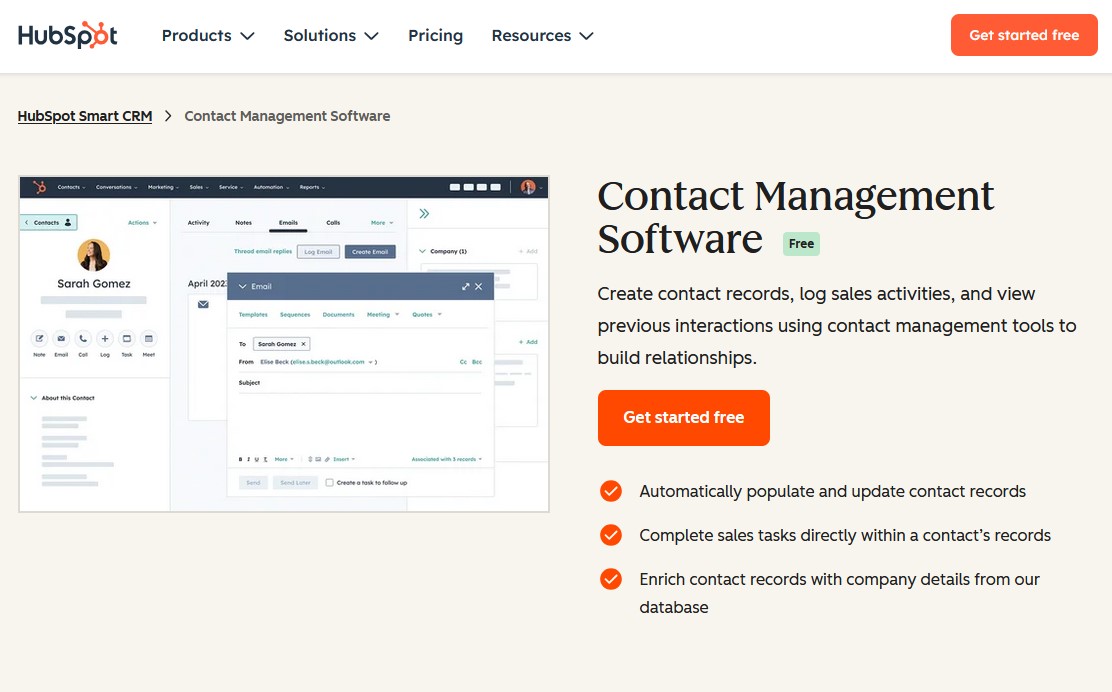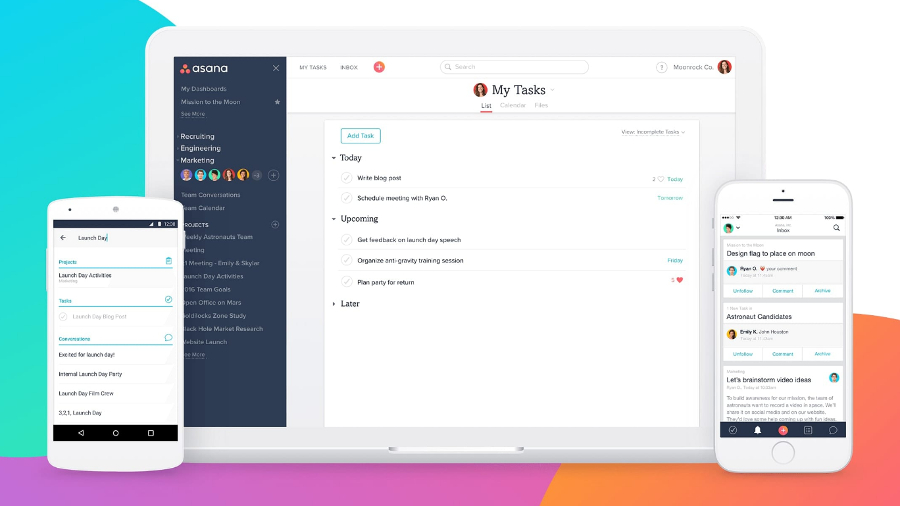Sponsored by Google Workspace
5 essential features every business should be using to increase productivity and drive growth
For businesses to stay ahead, consider each of these features

To maintain an edge in a competitive business landscape, companies need to leverage the right features and technologies.
Businesses of all sizes, from startups to established enterprises, must consider the integration of five essential features that can significantly boost operational efficiency, enhance customer satisfaction, and drive sustainable growth.
Your Complete Productivity Suite. Email, Docs, Meetings, and AI in One Place. Upgrade to Google Workspace and save 15% on Starter, Standard and Plus for 12 months (Flex & Commit).
Techradar Pro Approved Sponsored Offer
1. Robust Customer Relationship Management (CRM) system
Organizations require a robust CRM system to enhance customer engagement and boost customer retention rates.
Modern CRM platforms consolidate vital customer data points, including interaction records, communication logs, and individual preference information, into a single, unified database that users can easily access and manage.
The consolidated customer data enables businesses to gain deeper insights into each customer, allowing them to deliver personalized services and targeted marketing campaigns.
A well-implemented CRM system enables organizations to optimize their sales operations, resulting in increased efficiency and effectiveness. These systems automate tasks and enhance team collaboration, ensuring that all staff members have access to up-to-date and consistent customer information.

CRM tools provide valuable analytical insights into customer actions, enabling organizations to identify patterns and anticipate future needs. The data-driven approach enables organizations to create personalized offers and communications, leading to increased customer satisfaction and loyalty.
An advanced CRM system enables businesses to establish significant customer connections through all contact points.
Businesses can achieve both improved conversion rates and increased customer lifetime value through personalized communication methods, such as targeted emails, follow-ups, and product recommendations, that cater to customers who are more likely to return and recommend the brand.
Organizations must invest in dependable CRM systems to establish lasting customer relationships and achieve sustained business success.
Real-time customer understanding through CRM systems creates a significant competitive advantage, as it enables businesses to adapt to market changes.
2. Integrated project management and collaboration tools
The growing popularity of remote and hybrid work environments necessitates that organizations implement effective project management and collaboration tools to support their operations.
These platforms serve as central hubs for task management, enabling efficient workflow organization and improved team collaboration, regardless of team member locations.
The essential features of these tools include shared calendars, which synchronize schedules; task assignments, which define responsibilities; and real-time updates, which provide continuous information on project progress.

Project management tools mitigate communication risks by providing these capabilities, ensuring that team members share a common understanding of organizational objectives.
The majority of these platforms include sophisticated resource allocation features. The platform enables businesses to distribute their resources more effectively, resulting in an optimized workflow that leads to efficient task completion and timely delivery.
The tools enable managers to monitor resource usage, which helps them detect bottlenecks and make prompt adjustments to maintain project deadlines and stay within budgetary limits.
Project management and collaboration tools integrated into remote work environments enhance productivity while improving team member accountability, resulting in better project success rates.
3. Automated accounting and financial management software
Organizations must maintain strong financial health to achieve growth and sustainability in today’s complex financial environment.
The financial management environment becomes more manageable for organizations through the use of essential tools, including automated accounting and financial management software.
The advanced systems deliver precise and reliable solutions that maintain financial accuracy while providing instant access to complete financial performance data.
Automated solutions simplify financial operations by handling key tasks, including invoicing, payment processing, payroll management, and tax preparation, which reduces manual data entry work and minimizes human errors.

The system provides essential analytics to businesses, enabling them to better understand their cash flow management, budgeting, and forecasting processes. The large amount of information enables companies to make strategic decisions and optimize their resource allocation.
Organizations gain better visibility into financial metrics, which helps them detect emerging trends and potential risks, allowing them to take proactive measures against financial challenges.
The tools integrate with other business systems to create a unified operational management approach, which enhances financial oversight.
Organizations that invest in automated accounting and financial management software achieve long-term success by doing more than following technological trends.
Organizations that develop financial awareness and operational agility through their culture will better handle uncertainties while optimizing their financial strategies to achieve sustainable growth in unpredictable markets.
4. Robust cybersecurity measures
Digital transformation has become a dominant force in modern society, so organizations must establish robust cybersecurity systems to protect sensitive data while maintaining stakeholder confidence.
The growing dependence on technology has exposed organizations to an increased number of cyber threats, necessitating the development of comprehensive, proactive cybersecurity protection strategies.
Business organizations need to develop multi-dimensional cybersecurity systems that contain fundamental protective elements. The protection of sensitive information requires data encryption, as it transforms important data into unreadable formats, thereby securing it from unauthorized users in the event of a breach.
The establishment of strict access controls must include multi-factor authentication, along with role-based access permissions, to limit access to sensitive data to authorized personnel.
The security infrastructure depends heavily on threat detection systems for its operation. Organizations can detect threats in real-time through advanced analytics and machine learning technology, enabling an immediate response to security threats.
Security assessments and penetration testing conducted regularly strengthen defenses by detecting vulnerabilities that malicious actors cannot use before organizations can fix them.
These security protocols serve as essential technical standards, protecting a company’s corporate reputation. Organizations face severe consequences from data breaches, including loss of customer trust, as well as legal penalties and significant financial damage.

Organizations that prioritize cybersecurity protect their assets while maintaining business operations in rapidly expanding digital marketplaces.
Organizations must comply with regulatory requirements, including the GDPR and HIPAA, as these standards mandate data protection practices that extend beyond organizational policies.
Non-compliance with regulations can result in significant financial penalties and further damage to a company's reputation. The organization's overall health and longevity depend on investments made in cybersecurity.
Organizations can foster dedicated employee engagement in data security practices by promoting a culture of cybersecurity awareness throughout their workforce.
Organizations that commit to information protection build trust with their customers and partners while establishing themselves as leaders in data protection.
Strategic cybersecurity implementation serves as an essential business requirement for establishing a trustworthy organization that operates with resilience in today's networked environment.
5. Data analytics and Business Intelligence (BI) tools
The business world now views data as the new oil due to its substantial value and potential. Raw data requires processing and analysis to produce meaningful insights, just as crude oil needs refining for its useful applications.
Data analytics and BI tools serve as essential tools for converting unprocessed data into actionable insights for informed decision-making.
These powerful tools enable organizations to delve deeply into their data, allowing them to uncover important trends and patterns that would otherwise remain undiscovered.
Advanced analytics techniques enable businesses to detect changes in consumer behavior while evaluating departmental performance, thereby optimizing operational procedures and enhancing efficiency.
The gained level of understanding enables organizations to optimize their operations, deliver customized customer experiences, and adjust their products to meet market requirements.
Organizations can use predictive analytics to forecast future outcomes through the analysis of historical data. Organizations can utilize this foresight to make informed, proactive decisions about inventory management, new product launches, and market entry, thereby reducing risks and identifying new growth opportunities.
Organizations that master data analytics and business intelligence gain the ability to rapidly adjust their strategies in response to changing market conditions. Such organizations maintain a superior competitive advantage through innovation while leading the way in industry trends.
Organizations that adopt a data-driven culture will succeed through their ability to interpret and execute data insights, which will establish them as agile, future-ready enterprises.
Sign up to the TechRadar Pro newsletter to get all the top news, opinion, features and guidance your business needs to succeed!
Bryan M. Wolfe is a staff writer at TechRadar, iMore, and wherever Future can use him. Though his passion is Apple-based products, he doesn't have a problem using Windows and Android. Bryan's a single father of a 15-year-old daughter and a puppy, Isabelle. Thanks for reading!

